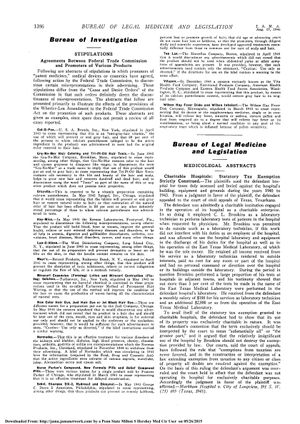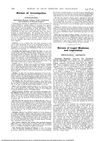Bureau of Legal Medicine and Legislation
August 1946
in “
Journal of the American Medical Association
”

TLDR Companies agreed to stop false advertising about their products' health benefits.
The document outlines various stipulations agreed upon by promoters of patent medicines, medical devices, and cosmetics following actions by the Federal Trade Commission (FTC). These agreements, made between 1944 and 1945, required companies to cease making false advertising claims about their products. Examples include U.S.A. Brands, Inc. ceasing to claim that Cal-D-Pan prevents gray hair, and the Gra-No-Mor Company stopping claims that their products restore hair color and promote hair growth. Other companies, such as Spiegel, Inc., Keenan Laboratories, and Normax Products, Inc., also agreed to discontinue misleading advertisements about their products' health benefits. Additionally, a legal case involving a charitable hospital's tax exemption status is discussed, where the court ruled that the hospital was not operating exclusively for charitable purposes due to a laboratory technician's private use of hospital facilities.




